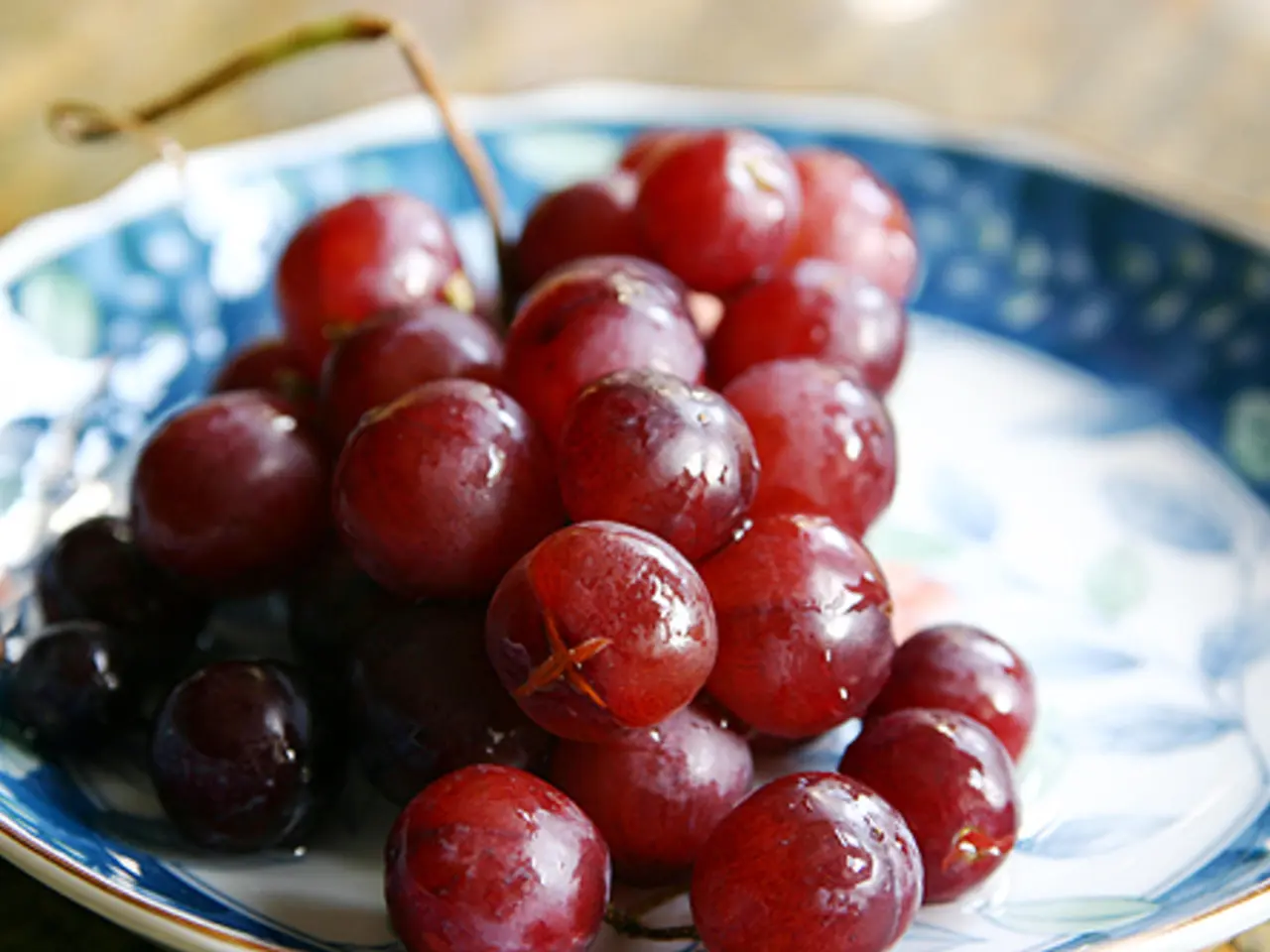Chickens Consuming Cherries: An Examination of Safety and Potential Hazards
Chickens can certainly enjoy cherries as a sweet treat, but it's important to feed them responsibly. Fruits like cherries should make up only 10% of a chicken's total diet to maintain nutritional balance.
Firstly, it's crucial to note that chickens should not be fed cherries with pits. The pits of cherries, like those of other stone fruits such as plums or peaches, contain a compound that can release cyanide, a toxic substance, when ingested. While a single pit might not cause harm if the chicken spits it out or if it passes through their digestive system without being digested, consuming multiple pits could be dangerous and lead to cyanide poisoning. Additionally, cherry pits are hard and indigestible, which can cause obstruction in the digestive tract.
To safely feed cherries to chickens, it is recommended to remove the pits before offering them. You can serve cherries in several ways:
- Fresh and pitted: Cut into halves or quarters.
- Frozen: As a cool treat on hot days.
- Mixed with feed: Add small cherry bits to their regular feed for a fruity surprise.
When offering cherries to baby chicks, make sure they are soft, mashed, and pit-free.
It's also worth noting that canned cherries should not be given to chickens due to their high sugar and syrup content. Fresh, ripe cherries should be used when feeding chickens.
Cherries are packed with vitamins and antioxidants, making them a healthy addition to a chicken's diet. However, feeding too much fruit can lead to runny poop, poor nutrition, and weight gain. It's best to stick to giving cherries once or twice a week.
Chickens love cherries, and they can be a fun and healthy treat for them when given the right way. But remember, a balanced diet is key to keeping your chickens healthy. Baby chicks should not be given cherries until they are at least 8 weeks old.
If a chicken eats one cherry pit by accident, it probably won't hurt, especially if the chicken spits it out. However, if a chicken eats many cherry pits, it could be dangerous. Signs of potential danger from cherry pits in chickens include trouble breathing, acting weak or tired, and not eating or drinking. If your chicken acts sick after eating cherry pits, call a vet right away.
Chickens can eat cherries, but always ensure that they are pitted to avoid any potential hazards. Cherries can be a delightful and nutritious treat for your feathered friends when given safely and in moderation.
Cherries can be incorporated into a chicken's lifestyle as a beneficial food-and-drink option, offering vitamins and antioxidants. However, serving cherry recipes to chickens should always involve removing the pits first to prevent potential cyanide poisoning or digestive tract obstruction.
A balanced diet is crucial for maintaining a chicken's health, and while cherries can be a delightful addition, they should only make up a small percentage of a chicken's total diet to ensure proper nutrition.




